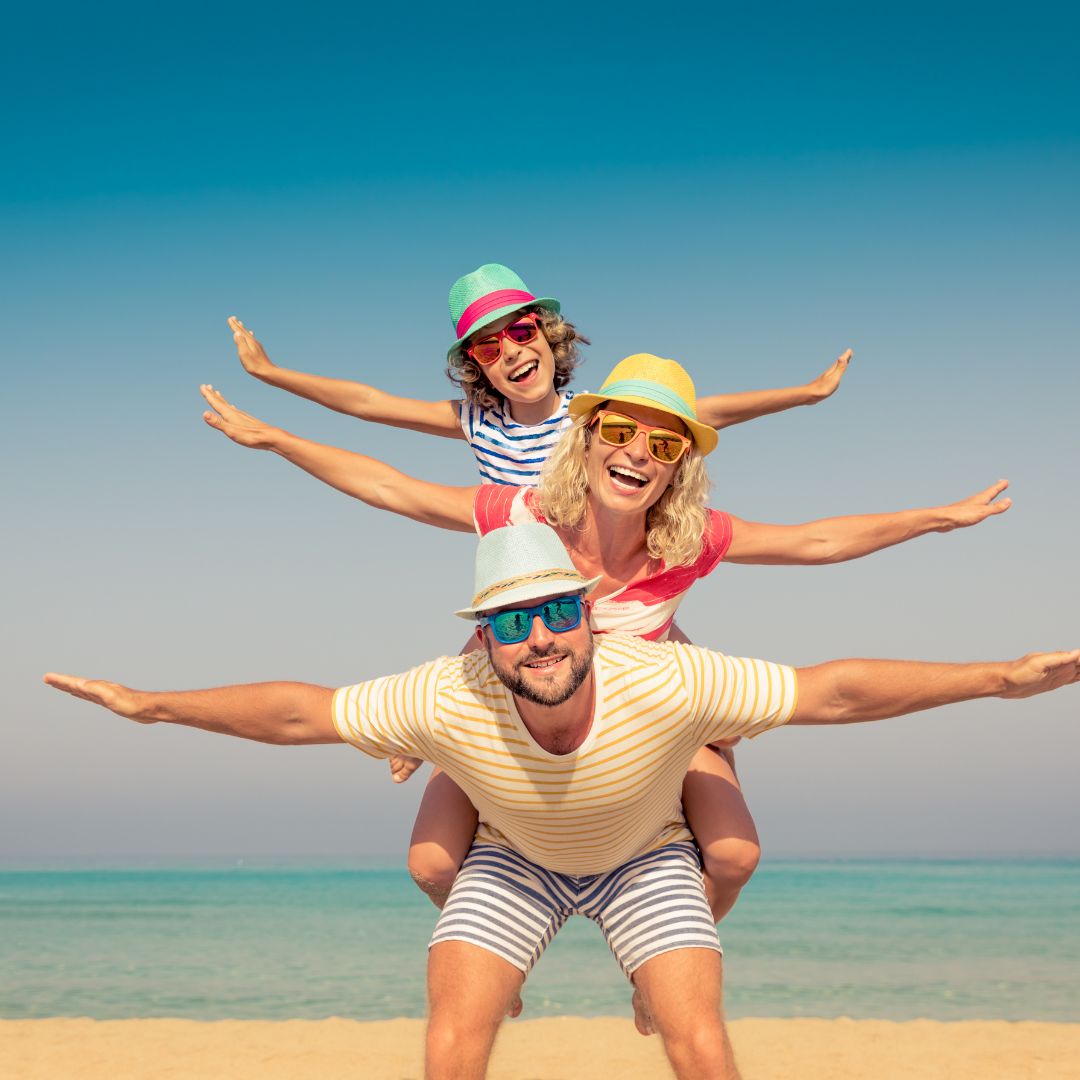
Holidays and diabetes. Which accommodation option is best for you?
Share
August is already here and for most of us it is intertwined with the long-awaited vacations that we look forward to for a whole year.
Whether we are away for a few or many days, whether we are traveling abroad or in Greece, alone or with friends, we need them. To relax, for a short break from the routine of everyday life, to delight our loved ones and to enjoy our days in any way we wish!
Having diabetes doesn't mean you can't go or stay wherever you want, but it's a good idea to choose a place that provides you with safety and convenience in the daily management of your health!
Basic instructions for organizing holidays
- Be careful when changing your daily routine. Irregular meal times, increased physical activity, alcohol, and eating out can affect your blood sugar levels, so don't neglect to take more frequent measurements in the first few days.
- Ask to find out where the nearest pharmacy, health center or hospital is located in case you need immediate medical assistance.
- Bring your own equipment in larger quantities so you don't run out of essentials. Insulin, blood sugar meter, sensor, first aid kit, snacks to treat hypoglycemia, ice pack, cooler, glucagon, your own cutlery - utensils in case you don't feel confident about cleanliness or are prone to infections.
- If you are traveling alone, inform someone of your whereabouts.
- It is recommended that you wear a diabetes identification bracelet or carry your medical card with you in case of emergency.
Let's take a detailed look at the accommodation options and what you should pay attention to in order to have a wonderful and safe vacation.
If you stay in a hotel
- Inform the reception or hotel staff - especially if you are traveling alone - that you have type 1 diabetes so they know just in case.
- Ask if there is a refrigerator in your room or if there is easy access to a refrigerator as insulin needs to be kept at the right temperature. You can request a mini-bar or separate refrigerator in your room.
- Check the breakfast/meals if you are going to eat at the hotel. Ask if they have sugar-free options or if you can bring your own food (if needed). Avoid filling your plate with foods that you don't know the ingredients of, have "hidden" sugars, are high in fat, or are high in carbohydrates.
If you stay at a free campsite
- Don't forget to have twice the amount of supplies you need to manage your diabetes.
- Use special cooler bags or a cooler with ice packs to keep insulin out of direct contact with ice. Do not leave it exposed to the sun or in a bag inside the tent.
- Bring long-lasting foods with you that you know how they affect your glucose levels.
- Always carry snacks for hypoglycemia, juices, and glucose in tablet or gel form with you.
- Make sure you have access to clean drinking water, as dehydration increases blood sugar levels.
- Antiseptics and wipes are essential for clean hands before measuring or injecting insulin.
- If you are cooking at the campsite, organize your meals with a balance of carbohydrates, protein, and fat, avoiding snacking.
- Sleep with easy access to the essentials (flashlight, snacks, meter) without neglecting the evening measurement, no matter how tired you are!
- If you are with friends, let them know how they can help you in case of hypoglycemia,
- Bring a power bank or alternative charging methods for your cell phone or medical devices.
If you choose to stay at an organized campsite
In an organized campsite, there are appropriate infrastructures such as toilets, showers, refrigerators, restaurants or shared kitchens.
- Ask if it is possible to have your own refrigerator to store your insulin or sensitive medications.
- Find out if there is a doctor at the campsite or if you have easy access to medical care.
- If you eat at the campsite restaurant, ask about the ingredients and avoid unnecessary fats, ready-made sauces and salads.
- Avoid prolonged sun exposure, as combined with swimming and water sports, it can lead to hypoglycemia.
- Make sure you have easy access to your medical equipment at night and always have a flashlight, cell phone, and a snack next to you to treat nighttime hypoglycemia.
Accommodation in an Airbnb or a friendly relative's house
It is a safe option for people with diabetes as it ensures privacy, control over eating, and the freedom to organize your day as you wish!
- Make sure the kitchen is fully equipped with a refrigerator, stove, oven, basic cooking utensils and tools. Keep surfaces and utensils clean.
- You have the ability to organize your own meals according to your desires and without deviating from your eating habits. Avoid “experiments” that may cause your blood sugar to spike.
- Ideally, choose a location that is within close proximity to shops, a bakery, a pharmacy, or even a medical center.
Wherever you go... alone or with friends... the most important thing is to relax, fill your mind and soul with beautiful images... have a positive attitude... lots of smiles and keep the beautiful moments alive when you return to the beautiful city!
Have a great holiday with carefree, attentive and loving yourself!
Written by Marianna Metaxa
Educator, Author of the books "My Sweet Kelly" and the fairy tale "Melita and Zacharoulis" and lyricist of the song "Listen to My Heart" which was set to music by Sofia Grammenou
